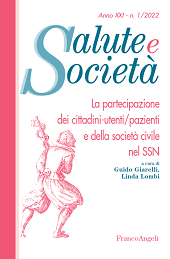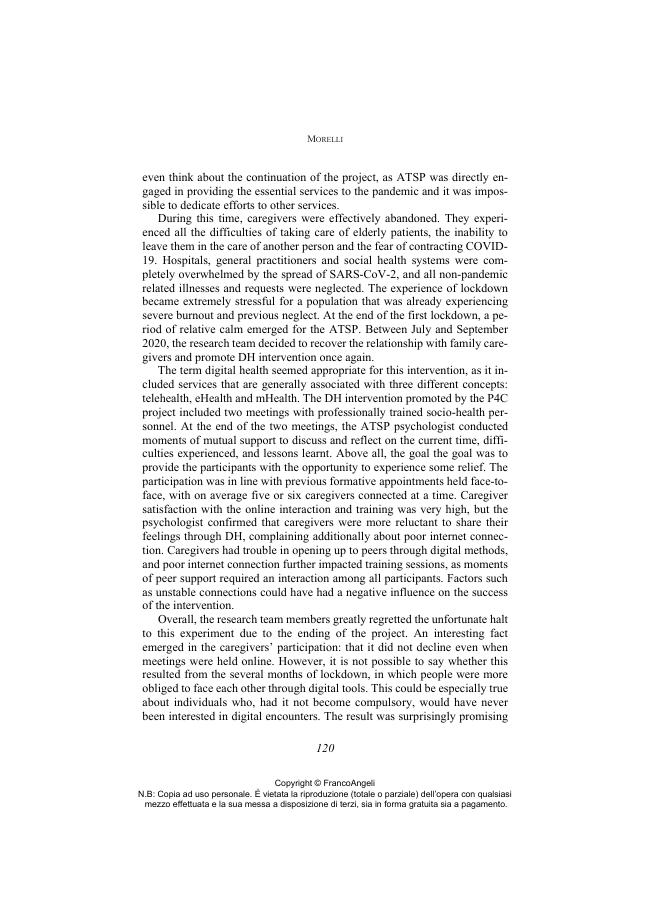Pandemic and family caregiving in rural areas : reflections after a participatory digital health intervention in Valle Camonica
P. 113-127
The current pandemic has resulted in the withdrawal of all social and health services not aimed at combatting COVID-19. This has led to a weakening of care services for family caregivers, especially in remote areas. Moreover, the pandemic has revealed all the frailties of a socio-health system that rarely involves caregivers in the co-design of services. However, in recent years, there has been a debate about the importance of promoting participatory interventions to support carers. Digital health (DH) intervention has been suggested as a successful tool to as-sist remote carers and engage them.
This article reflects on the outcomes of a participatory DH intervention in Valle Camonica for family caregivers. The results indicated how DH could be a valid solution to train caregivers safely and effectively, but also how these interventions could not be considered as a panacea for all the weaknesses of health and social services. Mutual psychological support and community belonging among caregivers are not optimal in a remote connection dimension. This article contributes to the literature on the engagement of caregivers in the co-design of care interventions, with particular attention to DH, by pointing out by pointing out certain aspects that need to be considered in the implementation amongst a fragile population in a rural setting. [Publisher's text]
Forma parte de
Salute e società : XXI, 1, 2022-
Artículos del mismo número (disponibles individualmente)
-
Información
Código DOI: 10.3280/SES2022-001008
ISSN: 1972-4845
KEYWORDS
- Digital Health, Covid 19, Family caregiver, Rural areas, Engagement, Intervention



